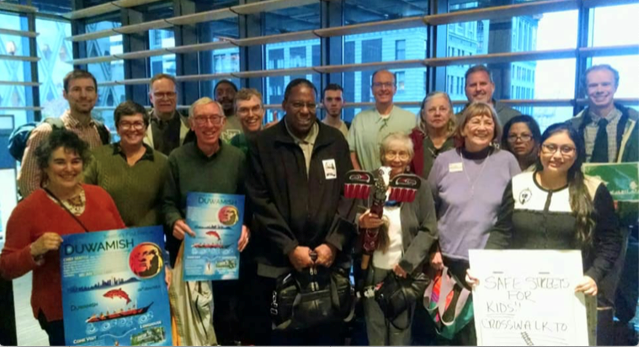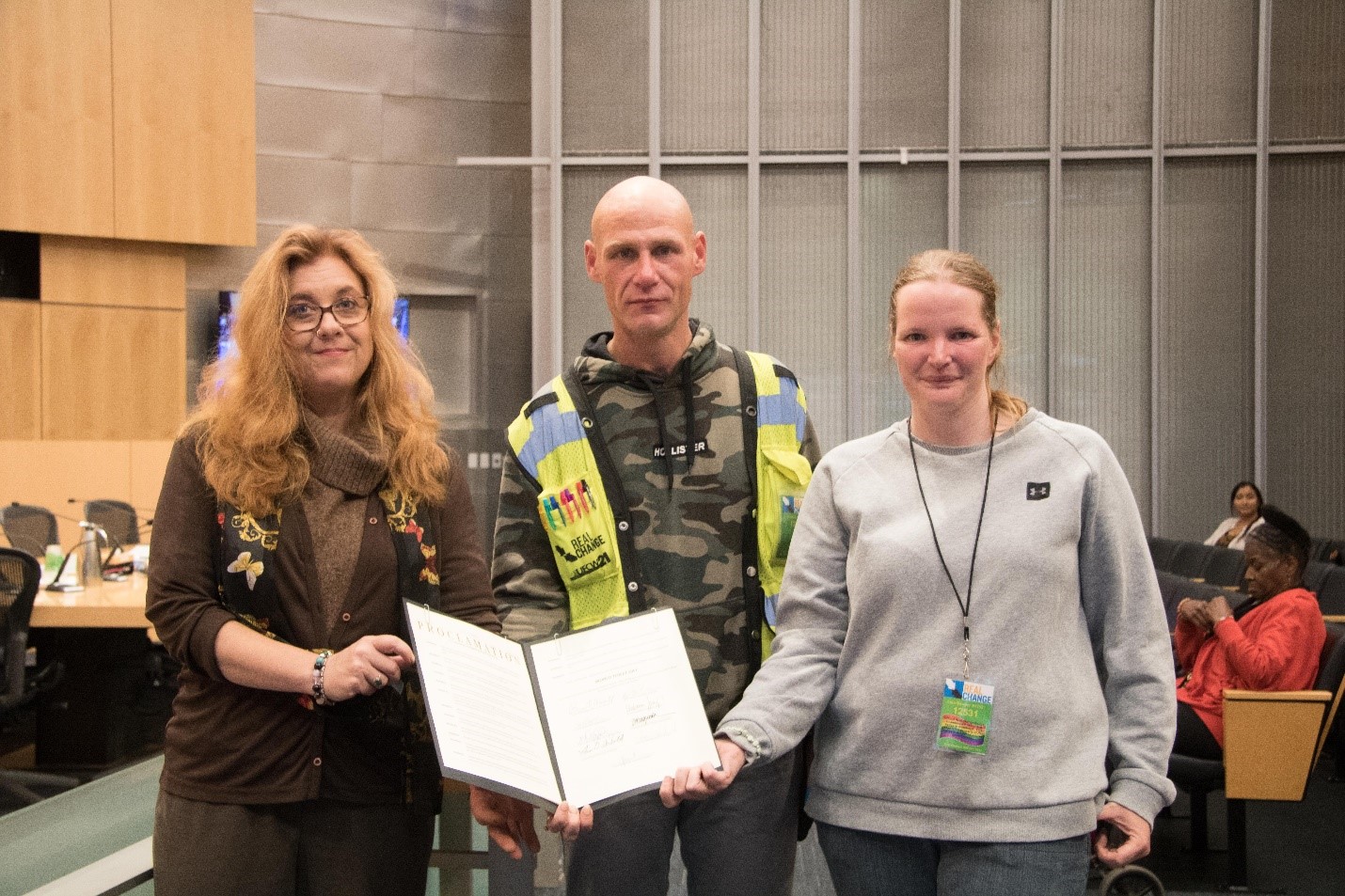This Week in the Budget
This week the Council’s Budget Committee met on Monday and Tuesday for Budget Deliberations and Issue Identification. On Tuesday evening, the Council held the second public hearing on the 2020 budget. We had some great public testimony from residents with the D1 Community Network in support of funding for priority projects in West Seattle and South Park, namely the Duwamish Longhouse Crossing Safety Project and the Georgetown to South Park Trail.
On Wednesday, Councilmembers had a deadline for all proposals to be discussed next week as part of the Council Budget Action discussions next week, beginning on Tuesday, October 29th.
After those items are presented, Budget Committee Chair Bagshaw will develop an Initial Budget Proposal at the Budget Committee meeting on November 6th. Councilmembers can then propose amendments to the Initial Budget Proposal by November 8th.
Here’s a link to the Budget Committee schedule. Budget Committee meeting agendas and materials are available here. A description of the Council’s budget process is linked here.
Next week I’ll share information with you about my priority budget proposals.
WTO 20th Anniversary Event – December 7
November 30 marks the 20th year anniversary of the 1999 World Trade Organization protests in Seattle. To commemorate the event, the Washington Fair Trade Coalition (WFTC) is organizing an event with a rally, workshops, and a keynote speech featuring economist Joseph Stiglitz and Lori Wallach at Town Hall Seattle—check out more and RSVP here.
The WTO protests were aimed at shutting down the WTO Conference at the Seattle Convention Center that were launching an international round of trade negotiations. Activists, labor unions, anarchists, and student groups participated in the march after preparing for months. These groups were critical of the negative effects of free trade in the global south that threatened people of color, women, workers, and the environment.
The WTO Protests, also known as the “Battle of Seattle”, was an important moment in movement history for Seattle and the world; a decade of deregulation and austerity measures imposed on countries by organizations like the International Monetary Fund and World Bank had primed this “antiglobalization” movement, and WTO elevated the conversation into the mainstream. The vast majority of the demonstrators used nonviolent tactics, however as Seattle Police felt overwhelmed by the size of the protest, and a small group of Black Bloc anarchists attempted to target corporate businesses, police deployed tear gas, pepper spray, and rubber bullets on protestors. Police Chief Norm Stamper resigned following the protests, and the City settled in a class action suit of 157 individuals who were arrested without cause. HistoryLink has a cool article on the protest.
Estimates put the costs of the WTO Conference at $3 million above the original $6 million budgeted to host the conference, due in part to police overtime.
World Toilet Day Proclamation
Also coming up in November is World Toilet Day. World Toilet Day is internationally recognized to raise awareness in making toilets and hygiene services available and accessible for all. I decided to sponsor the Proclamation this week in partnership with Real Change and a budget proposal I’ve introduced to adopt five Mobile Pit Stops!
Not only do public bathroom facilities help keep our communities clean and mitigate the impact of communicable disease like Hepatitis A, but they protect our water ways. As Real Change’s “Everybody poo’s” campaign declares, using the bathroom is necessary human function, and public toilets create privacy and comfort for the broader public—not only does this benefit people living unsheltered, but tourist, patrons and businesses in our urban villages and commercial districts as well.
As I wrote in my last post, the Mobile Pit Stop model is a top recommendation from the City Auditor to help the Navigation Team be successful in as an important connection point for people living unsheltered to housing and services. I’ll keep you updated on this proposal as we move through the budget cycle.




